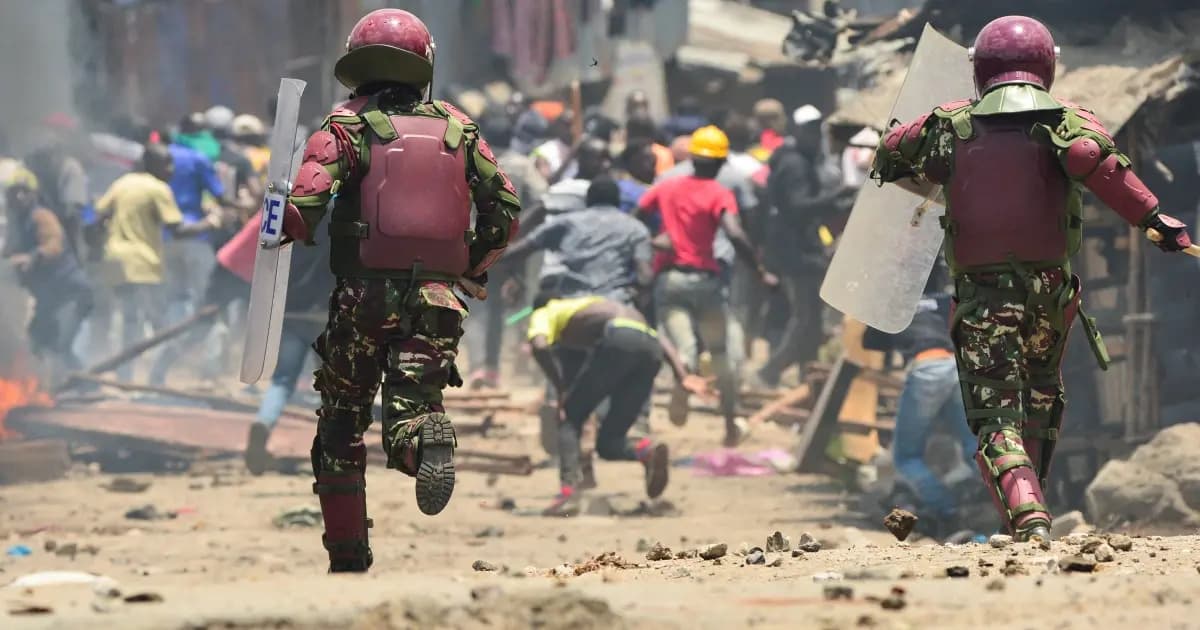We're loading the full news article for you. This includes the article content, images, author information, and related articles.
The increasing normalisation of far-right terminology, often originating online, is subtly influencing mainstream political conversations globally, raising concerns about its potential impact on Kenya's diverse social and political landscape.

In an era of rapid information dissemination, the language used in political discourse is undergoing a significant transformation, with terms coined by the online far-right increasingly permeating mainstream conversations. This shift, while originating largely in Western contexts, carries implications for Kenya, a nation grappling with its own political narratives and social cohesion.
Dr. Robert Topinka, an expert in reactionary digital politics, highlights how terms like 'Boriswave' – initially a racial epithet used by the 'extremely online far right' to describe post-Brexit migration patterns – can enter public discourse, carrying inherent right-leaning framings even when users are unaware of their origins. This phenomenon underscores a broader trend where political language is shaped 'downstream of culture,' with the far-right demonstrating a notable success in influencing this linguistic evolution.
Kenya's political history is marked by periods of intense rhetoric, often along ethnic or ideological lines. The careful crafting and dissemination of political messages have historically played a crucial role in mobilising support and, at times, exacerbating divisions. While the specific terms may differ, the underlying mechanism of using charged language to influence public opinion is not new to the Kenyan context. The rise of social media platforms has amplified this challenge, allowing for the rapid spread of narratives, both factual and misleading, across diverse populations.
Kenya has legal frameworks in place to address hate speech and incitement, primarily through the National Cohesion and Integration Act, 2008. This legislation aims to prohibit discrimination and promote national unity. However, the subtle infiltration of politically charged terms, as described by Dr. Topinka, presents a more nuanced challenge that existing laws may struggle to fully address. The focus often remains on overt hate speech, while the insidious normalisation of coded language can go unchecked, potentially influencing policy discussions and public perception without direct legal transgression.
Civil society organisations in Kenya, such as Haki Africa and Article 19 Eastern Africa, have consistently advocated for responsible communication and condemned the use of divisive language in politics. They often highlight the impact of such rhetoric on social cohesion and democratic processes. Political leaders, on the other hand, face the constant pressure of public opinion and the temptation to adopt popular, albeit potentially problematic, terminology to resonate with certain segments of the electorate. The media also plays a critical role in either amplifying or scrutinising such language, shaping its reach and impact.
While specific data on the adoption of far-right terminology in Kenyan political discourse is limited, global trends indicate a growing concern. A 2023 report by the Anti-Defamation League (ADL) noted a significant increase in the online spread of extremist narratives, often employing coded language. This global pattern suggests a need for vigilance in Kenya, particularly with the high internet penetration rates and active social media engagement among the youth. According to the Communications Authority of Kenya (CA) Sector Statistics Report for the first quarter of 2024/2025, internet subscriptions reached 50.8 million, indicating a vast online audience susceptible to various linguistic influences.
The normalisation of far-right rhetoric poses several risks for Kenya. It can subtly shift public opinion, making extreme views seem more acceptable. This can lead to increased polarisation, undermine democratic institutions, and potentially fuel social unrest. Furthermore, such language can be used to dehumanise certain groups, making them targets of discrimination or violence. For a country with a history of ethnic tensions, the careful management of political language is paramount to maintaining peace and stability.
One key unknown is the extent to which specific far-right terms from Western contexts are directly adopted or adapted within Kenyan political discourse, and how they intersect with existing local narratives. Another area of uncertainty is the effectiveness of current regulatory frameworks and public awareness campaigns in countering this subtle linguistic influence. There is also ongoing debate about the balance between freedom of speech and the need to curb harmful language, particularly when it is coded or indirect.
The evolution of political language is an ongoing process. Moving forward, increased media literacy initiatives are crucial to equip Kenyans with the tools to critically assess the language they encounter. Research into the specific adoption and impact of such terminology within the Kenyan context is also vital to inform targeted interventions. Additionally, continued dialogue between policymakers, civil society, and media organisations is necessary to develop comprehensive strategies for promoting responsible and inclusive political discourse.
Observers should closely monitor the language used by political figures and in online discussions, particularly during election cycles. The emergence of new terms or the increased use of subtly coded language should be scrutinised. The response of regulatory bodies and the effectiveness of civil society interventions in addressing these linguistic shifts will also be key indicators.
Keep the conversation in one place—threads here stay linked to the story and in the forums.
Sign in to start a discussion
Start a conversation about this story and keep it linked here.
Other hot threads
E-sports and Gaming Community in Kenya
Active 9 months ago
The Role of Technology in Modern Agriculture (AgriTech)
Active 9 months ago
Popular Recreational Activities Across Counties
Active 9 months ago
Investing in Youth Sports Development Programs
Active 9 months ago